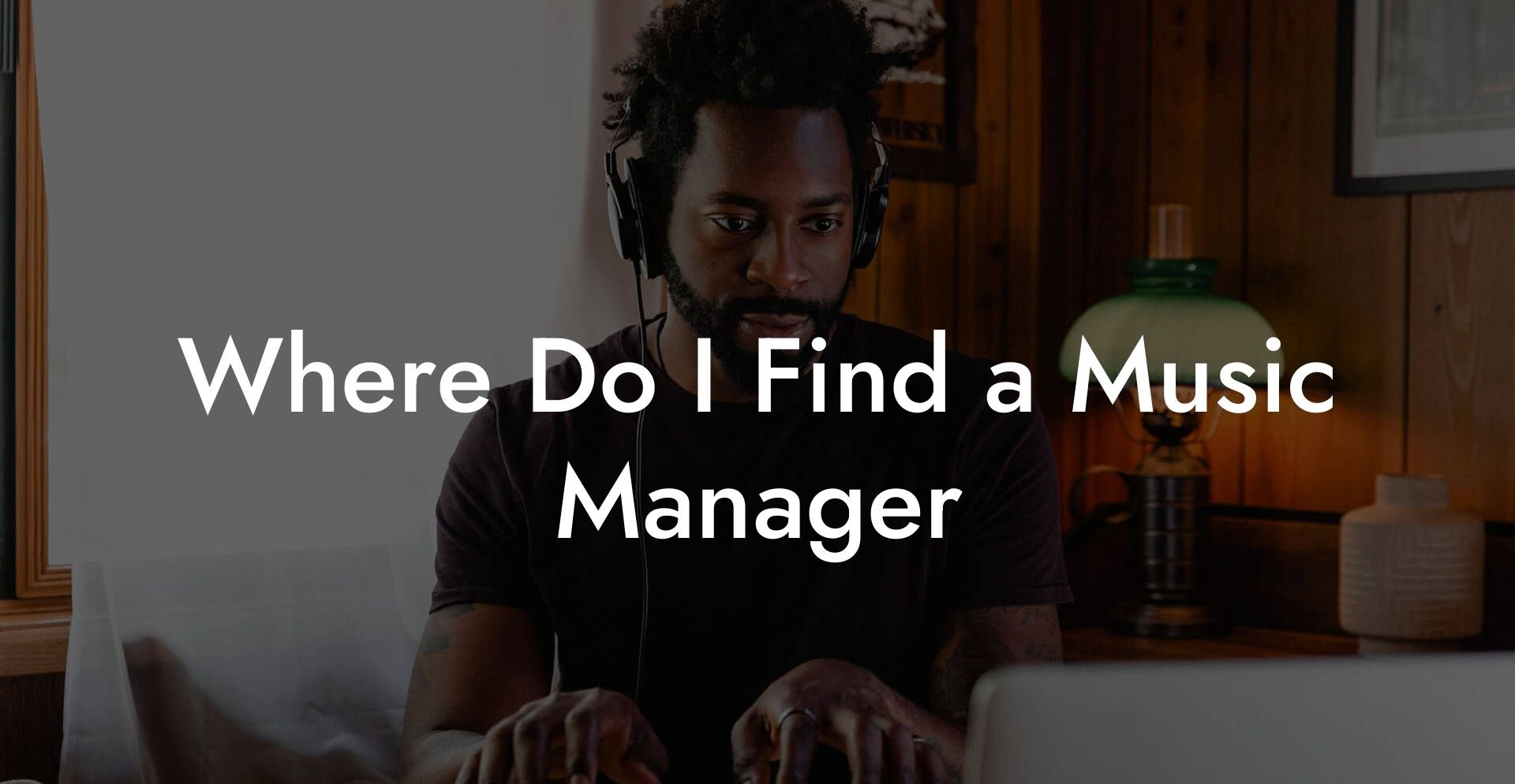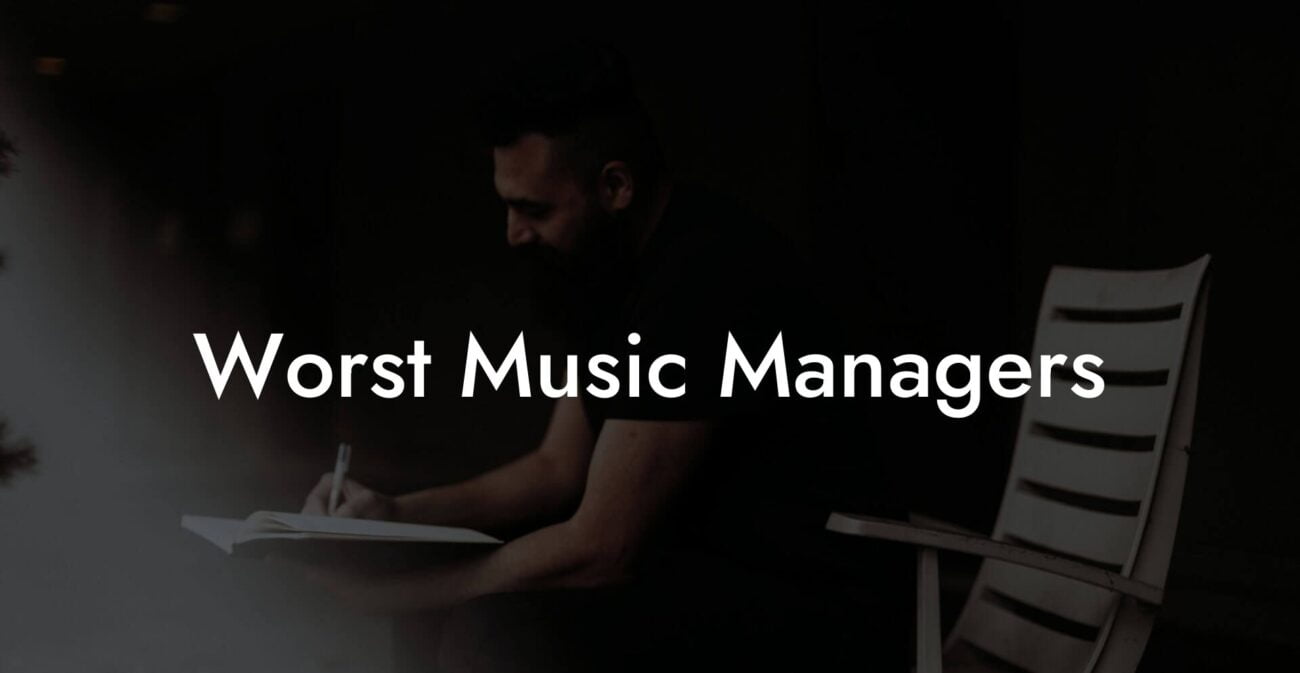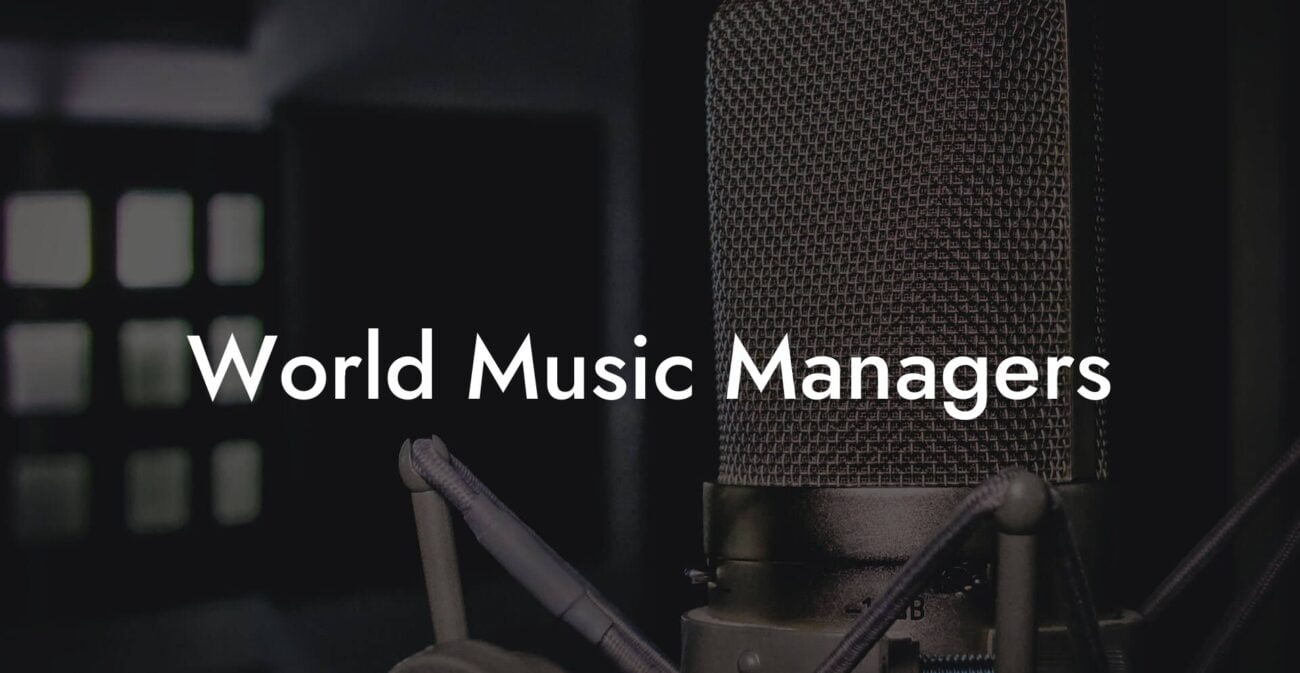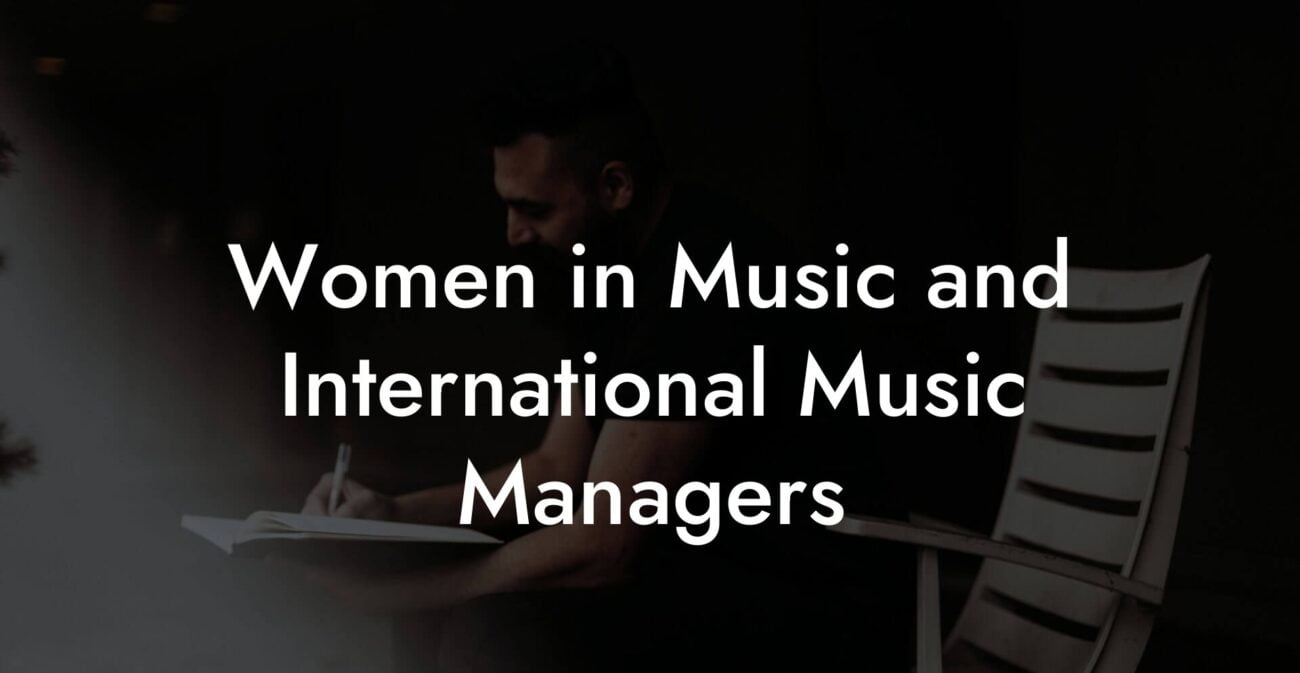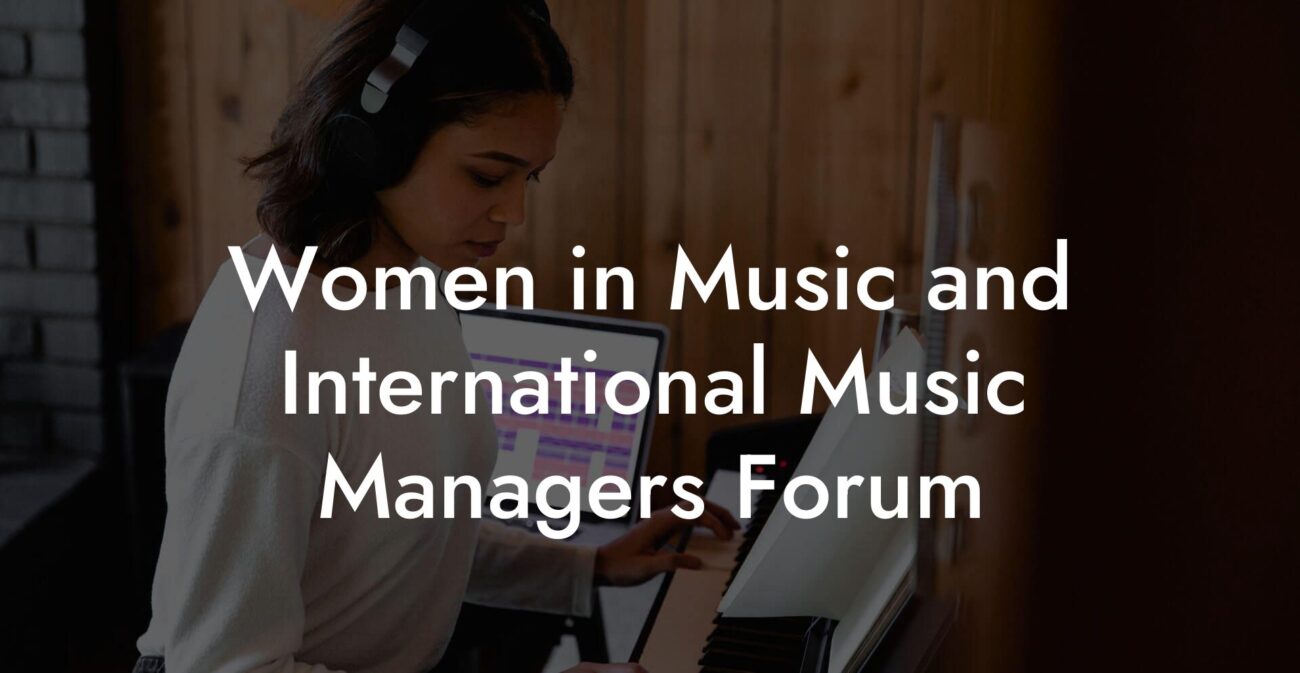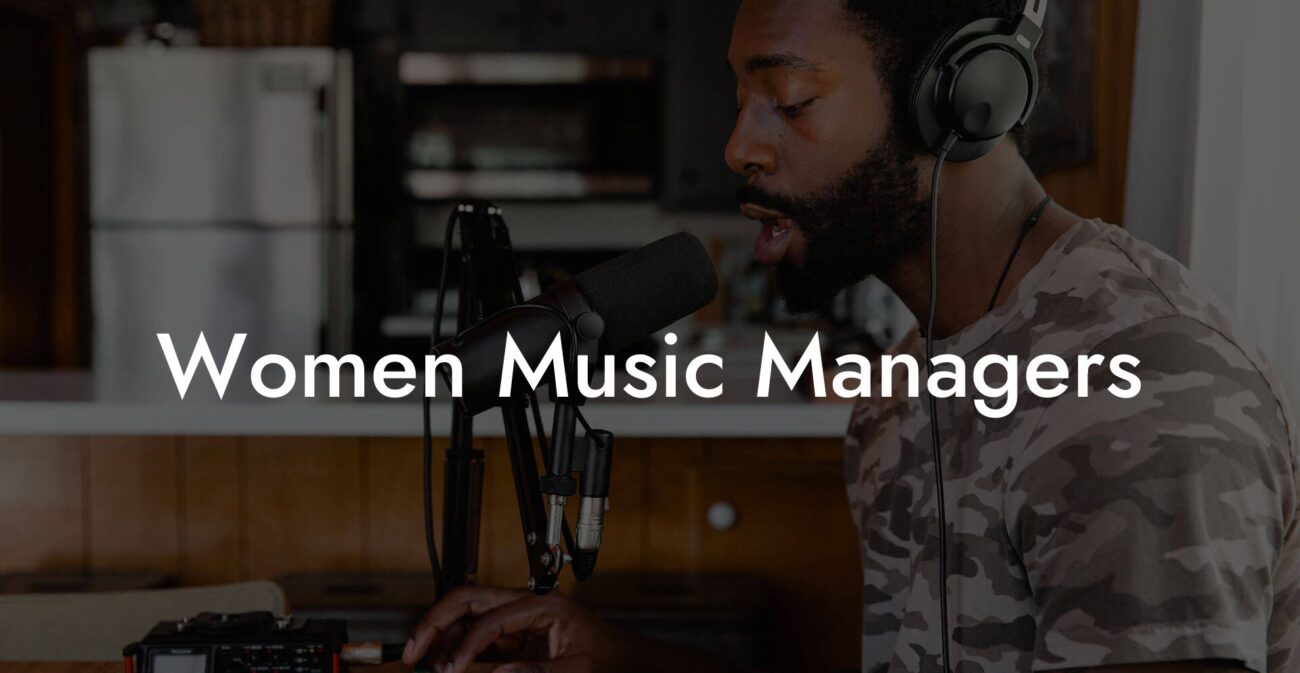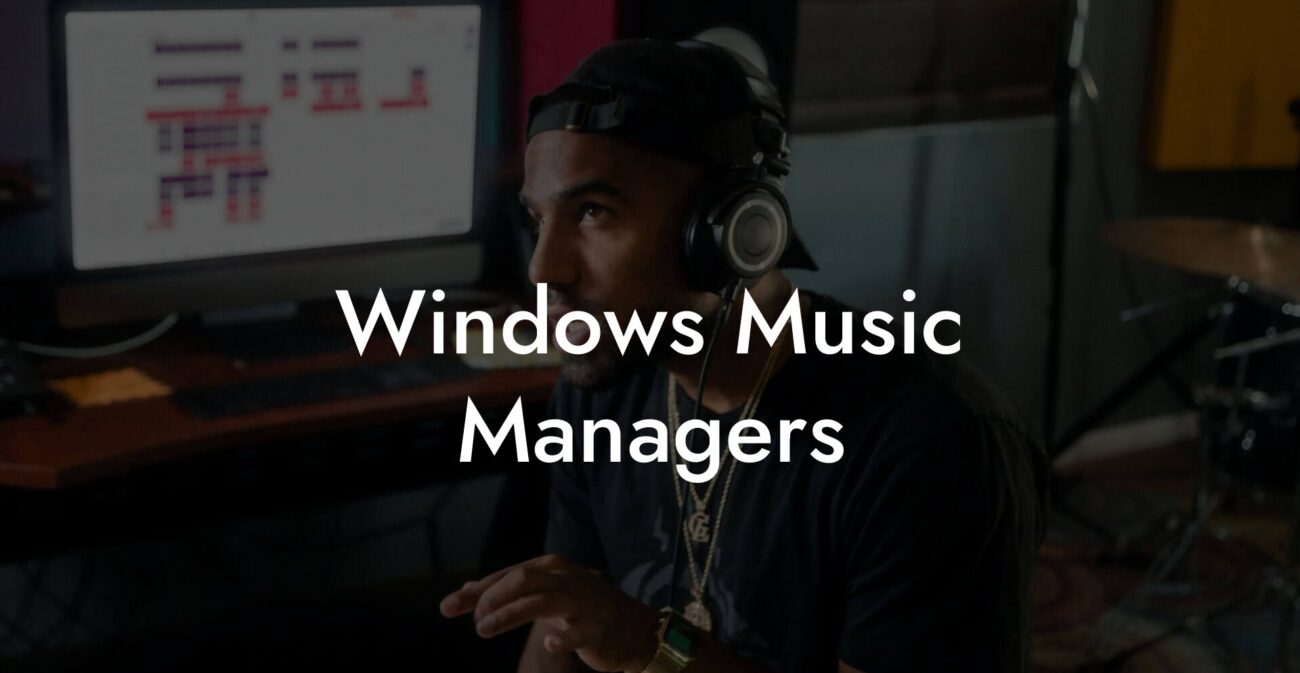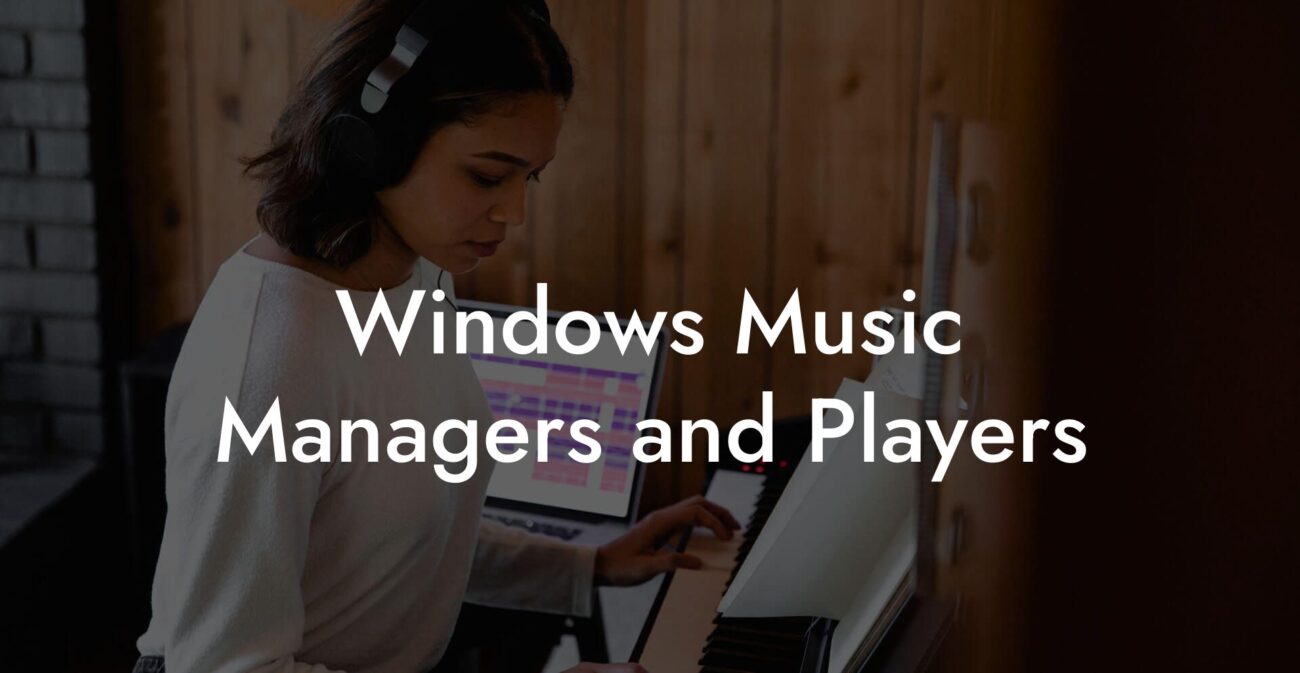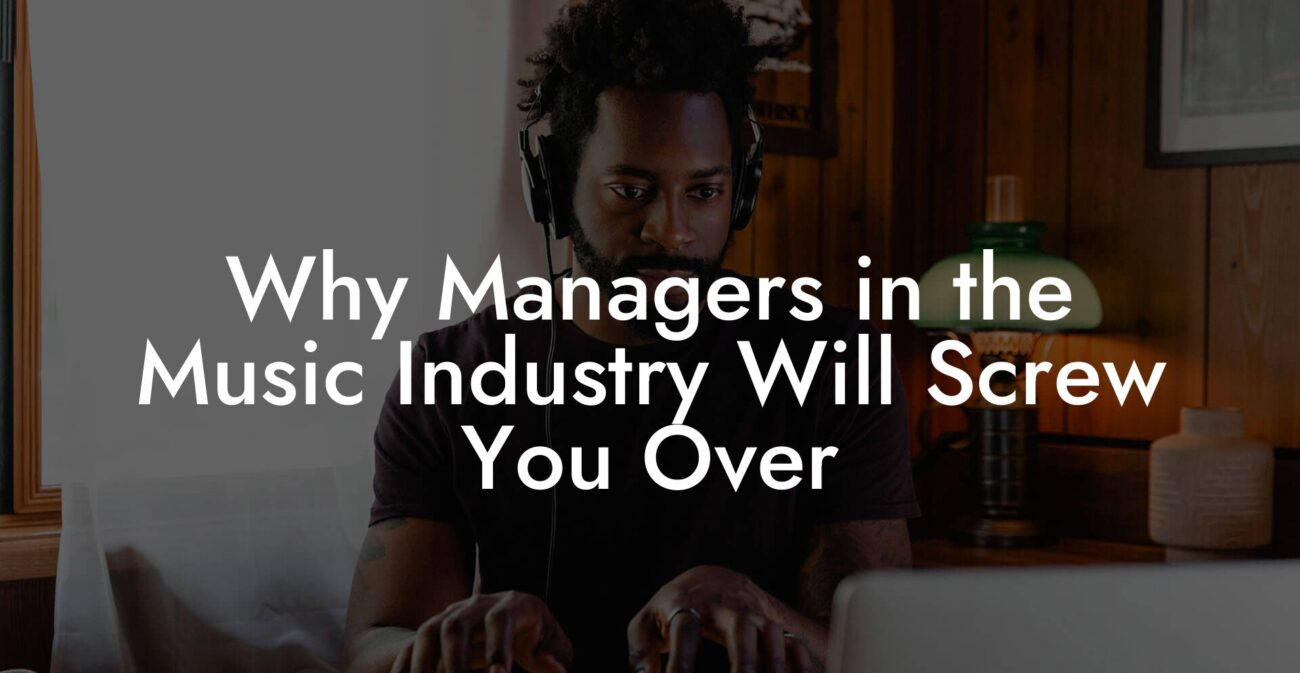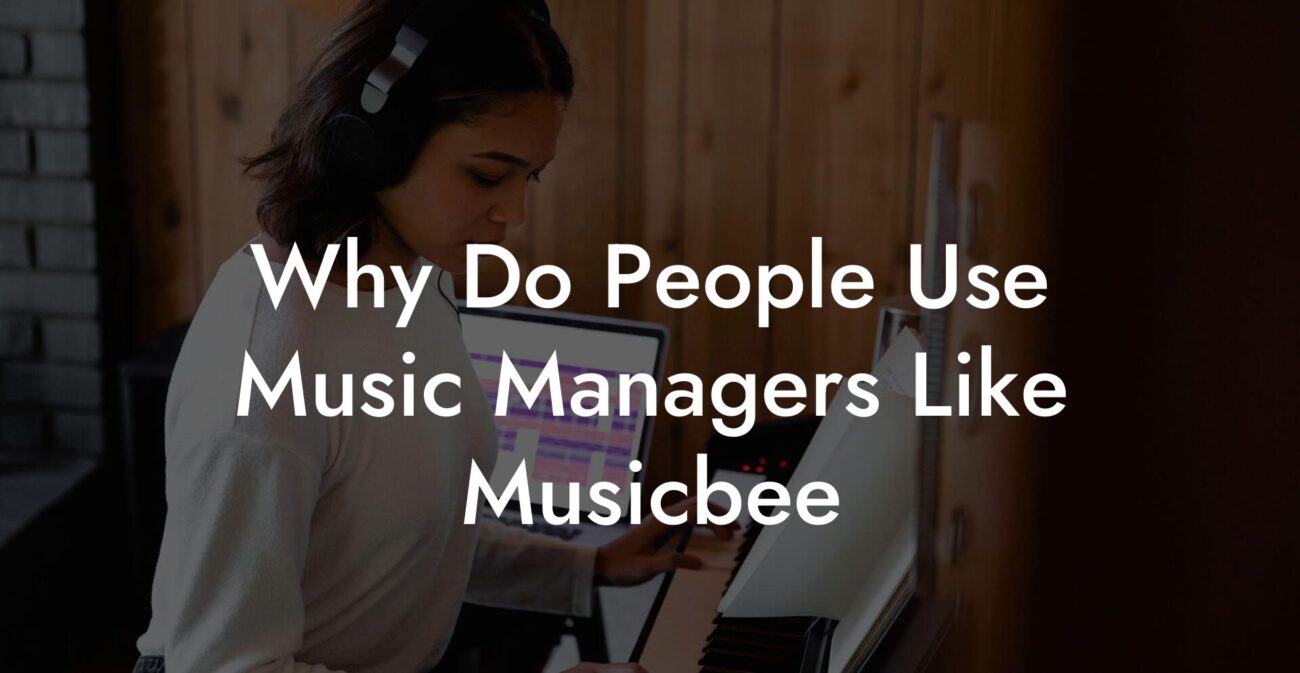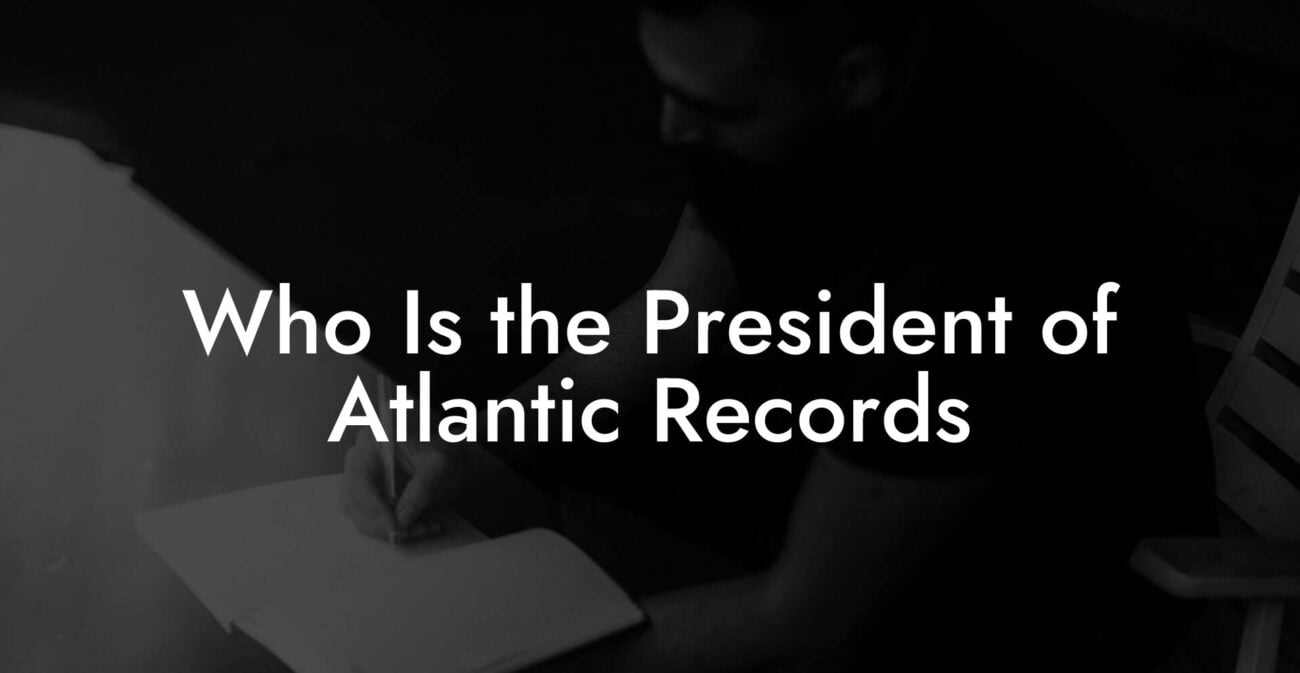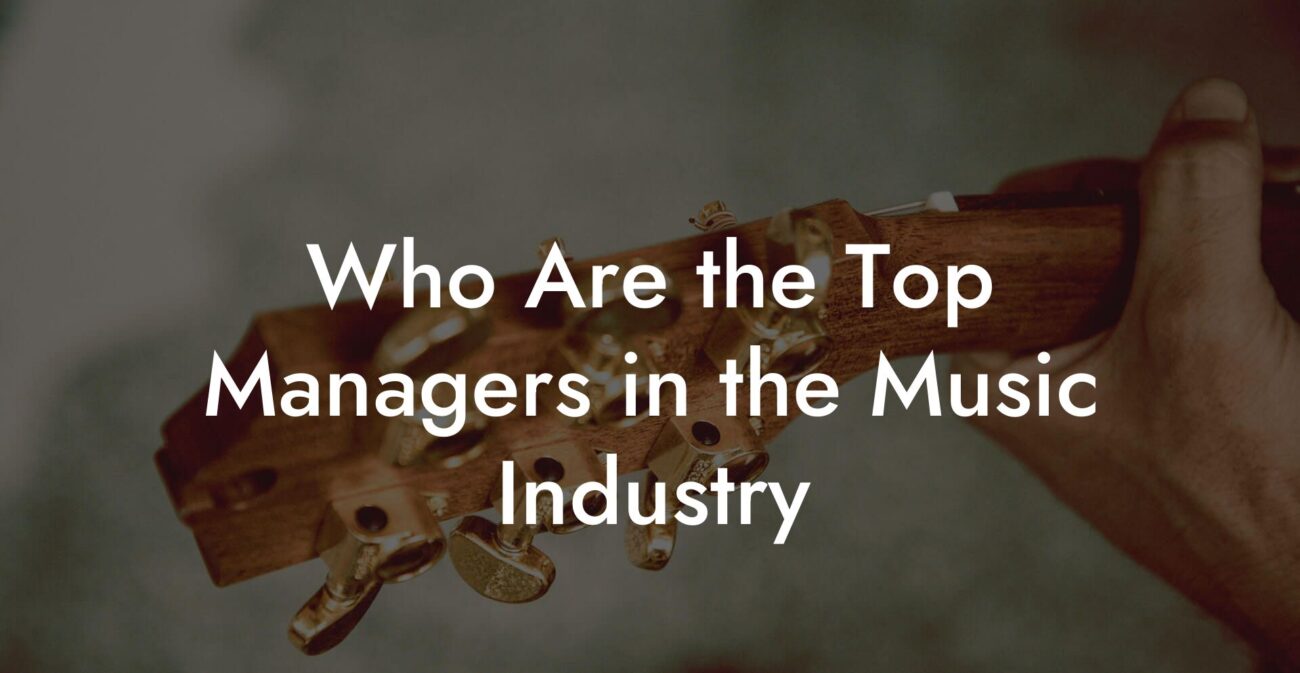Ever get that nagging feeling that your musical genius deserves a partner in crime—a savvy music manager who not only understands your vibe but also knows the back alleys of the music industry? Welcome to your definitive guide on “Where Do I Find a Music Manager.” Whether you’re an indie singer-songwriter dropping beats in your bedroom or a millennial/Gen Z artist ready to take the stage by storm, this guide is here to help you navigate the wild, fun, and sometimes perplexing journey of finding the perfect music manager to amplify your artistry and manage your career.
Looking to write your next song? Transform your creative ideas into songs that people will love, and skyrocket your music career with Lyric Assistant. The perfect songwriting assistant. Find out more →
Quick Links to Useful Sections
- What Exactly Is a Music Manager?
- Why Do You Need a Music Manager?
- Where Can You Find a Music Manager?
- 1. Industry Networking Events and Conferences
- 2. Music Management Agencies and Directories
- 3. Social Media and Online Communities
- 4. Referrals from Fellow Musicians
- 5. Music Industry Blogs and Podcasts
- How to Evaluate and Select the Right Music Manager
- Do Your Homework
- The Power of a Face-to-Face Meeting
- Contracts and Clear Communication
- Key Qualities of a Great Music Manager
- Navigating the Modern Music Manager Landscape
- Embrace the Digital Tools
- Stay Agile and Open-Minded
- Preparing to Meet Your Future Music Manager
- Polish Your Portfolio
- Know Your Goals and Vision
- Ask the Right Questions
- Real-Life Success Stories: When a Music Manager Makes Magic Happen
- The Overnight Viral Sensation
- The Independent Artist Breaking Barriers
- The Collaborative Journey
- Resources and Community Support: Your Next Steps
- Online Music Communities and Forums
- Music Management Directories
- Educational Workshops and Webinars
- Local Music Events and Open Mics
- Building a Long-Term Partnership with Your Music Manager
- Establish Shared Goals
- Maintain Open Communication
- Invest in Your Growth Together
- Leveraging Digital Tools to Enhance Your Search
- Crafting a Stellar Online Brand for Attracting Managers
- Exploring Alternative Paths When Traditional Routes Seem Limited
- FAQs: Finding the Perfect Music Manager
- Your Next Big Move: Embrace the Journey
What Exactly Is a Music Manager?
Picture this: you’re the creative spark that writes killer lyrics and composes irresistible tunes, but when it comes to booking gigs, negotiating contracts, and dealing with the endless maze of social media and industry networking, you’d rather be jamming than juggling. That’s where a music manager comes in. A music manager is like your personal industry sherpa; they help you navigate the busy terrains of the music business, from marketing to legal agreements, while letting you focus on what you do best—creating music.
Music managers wear multiple hats. They can be your business advisor, negotiator, publicist, and sometimes even a confidant who understands the ups and downs of your artistic journey. Whether you’re seeking a cutting-edge manager with experience in digital streaming, viral social media campaigns, and even TikTok trends, or a traditional manager steeped in industry knowledge, understanding what a music manager does is the first step on your journey.
Why Do You Need a Music Manager?
Let’s be honest: no matter how phenomenal your music might be, navigating the music industry alone can feel like trying to solve a Rubik’s cube blindfolded. That’s why having a music manager is vital—they help maximize your potential while you become the next big name in music.
Your manager is your strategic partner. They handle the nitty-gritty details like securing gigs, negotiating record deals, building your brand, and more. With a manager in your corner, you can redirect your energy to creating fire lyrics and unforgettable melodies. In a world where the digital landscape shifts as quickly as dance trends on social media, a savvy manager will ensure your music reaches the right ears at the right time.
So, why not supercharge your career? A music manager not only opens doors to connections with producers, labels, and booking agents, but also helps craft a long-term vision tailored to your unique style. Think of them as the ultimate collaborator, blending creative insight with business acumen, and ensuring every note you hit is backed by solid industry strategy.
Where Can You Find a Music Manager?
Now to the real question: Where do you find a music manager? The answer isn’t a secret location tucked away in some mystical corner of the music world. Instead, there are several channels where you can discover your future partner in artistic success.
1. Industry Networking Events and Conferences
One of the best ways to find a music manager is by attending music industry events, conferences, and expos. From small local gigs to massive festivals and panel discussions, these events offer an opportunity to mingle with professionals who breathe music business. Look for events such as the South by Southwest (SXSW), MIDEM, or even local showcases where industry professionals congregate.
Not only do these events help you build networks, but you can also attend Q&A sessions with successful managers who share insights, giving you a glimpse into what to expect and how to approach finding your ideal match.
2. Music Management Agencies and Directories
In the age of digital convenience, turning to music management agencies and online directories is a smart move. Websites dedicated to connecting artists and managers—like Music Managers Forum, Sonicbids, and ReverbNation—make it easy to browse through profiles, discover a manager’s expertise, and get in touch directly.
These directories allow you to filter by genre, location, and experience, ensuring you find a music manager who aligns with your style—be it rock, hip-hop, pop, or experimental electronic. Many agencies also highlight successful case studies from indie artists and viral sensations, which can inspire you and give you the confidence to reach out.
3. Social Media and Online Communities
Social media isn’t just for posting memes and viral dance challenges—it’s also a powerful tool for networking with industry professionals. Platforms like LinkedIn, Instagram, Facebook, and even Twitter are teeming with music managers who frequently share industry tips and success stories. Follow hashtags like #indieartist, #musicmanager, or #musicindustry for real-time insights and introductions.
Participating in online communities and forums dedicated to musicians can also open doors. Websites such as Reddit’s r/WeAreTheMusicMakers, Facebook groups for musicians, and even Clubhouse sessions on music industry topics provide spaces to ask questions, get recommendations, and perhaps even find a manager willing to invest in the next big sound.
4. Referrals from Fellow Musicians
Sometimes, the best leads come from within your own creative community. Talk to fellow musicians, bandmates, or even that cool local artist you met at an open mic night. Often, word of mouth can lead you to reputable managers who have already proven their worth in the industry.
Don’t hesitate to ask for referrals. Most artists are more than willing to share their experiences or introduce you to their management teams if they believe in your talent.
5. Music Industry Blogs and Podcasts
Blogs and podcasts play an essential role in curating the latest news, trends, and tips for emerging artists. Many music blogs often feature interviews with successful managers and provide practical advice on breaking into the industry. Podcasts hosted by music insiders can also provide real-life insights and tips on finding a manager.
By following these resources, you’ll not only learn the art of finding the right manager but also stay updated on industry trends, making you a savvier musician overall.
How to Evaluate and Select the Right Music Manager
It’s one thing to find a music manager; it’s another to choose the right one for you. This stage is perhaps the most critical, as the manager-artist relationship can make or break your career.
Do Your Homework
Before jumping into a meeting or signing any contracts, do your research. Check out the manager’s track record, review testimonials from other artists, and browse through their portfolio of past and present clients. A manager who’s worked successfully with a variety of artists may be more equipped to navigate the ups and downs of the music industry.
A quick online search, a deep dive into LinkedIn profiles, or even reaching out to mutual contacts in the industry can give you insights into how the manager operates—and whether your personalities will mesh.
The Power of a Face-to-Face Meeting
In an era dominated by video calls and Zoom meetings, it might be refreshing to arrange an in-person meeting if possible. This allows for a better sense of connection, chemistry, and genuine understanding of your shared vision. If geography proves to be an obstacle, a well-planned virtual meeting can also do the trick.
During these meetings, talk about your goals, your musical influences, and your expectations for management. Ask questions about their past experiences, strategies for growth, and how they plan to help you achieve your dreams. A true collaborator will be forthcoming with information and eager to create a tailored plan for your career.
Contracts and Clear Communication
When you’re satisfied with a potential music manager, the next step is discussing terms. It’s essential to understand every clause in the management contract. Look for transparency regarding commission percentages, duration of the contract, and the scope of responsibilities. If anything feels off or confusing, don’t hesitate to consult a lawyer or a trusted industry mentor.
Clear communication from the outset sets the stage for a productive working relationship. A successful partnership is built on trust, shared vision, and mutual respect.
Key Qualities of a Great Music Manager
Not all music managers are created equal. The ones who stand out are those who continuously adapt, listen, and relentlessly pursue innovation. Here are some qualities every musician should look for in a manager:
- Industry Experience: A seasoned manager should have a robust network of industry contacts and a portfolio that demonstrates tangible success in building artists’ careers.
- Transparent Communication: Your manager should be upfront about strategies, expectations, and even challenges that may come your way.
- Passion for Your Music: They should genuinely love your sound and be as excited as you are about amplifying your talent.
- Innovative Mindset: The music business is ever-evolving. A manager who embraces digital trends, social media marketing, and emerging platforms is invaluable.
- Business Acumen: The ideal manager possesses both creative insight and sharp negotiation skills, ensuring you get the best deals while staying true to your artistic vision.
- Reliability and Trustworthiness: Trust is non-negotiable. You want someone who’s on your side, respects confidentiality, and has your back in every high and low moment.
As you search for a music manager, ensure that these qualities aren’t just buzzwords but are genuinely reflected in their work and reputation.
Navigating the Modern Music Manager Landscape
The landscape of music management has shifted dramatically over the years. With the surge of digital technologies, streaming platforms, and social media influencers, finding a manager today involves a mix of old-school networking and new-school digital savvy.
Gone are the days when a manager was solely focused on securing record deals through traditional channels. Today, savvy music managers are equally adept at using digital analytics, optimizing social media, and leveraging online communities to propel an artist toward viral success. If you’re wondering whether to go with a traditional music manager or someone newer to the digital pulse, consider the merits of each approach. The right manager for you might very well be a hybrid—a professional who combines time-tested industry practices with digital innovation.
Embrace the Digital Tools
Being a digital native means you live at the crossroads of technology and creativity. Embrace this by seeking out music managers who utilize the latest digital marketing tools, social media scheduling software, analytics dashboards, and crowd-sourcing platforms. These tools can help enhance your online presence, engage with fans, and attract the attention of industry insiders.
Stay Agile and Open-Minded
The music industry is notoriously unpredictable. A great music manager understands that adaptability is crucial—in concert with an agile mindset that can pivot strategies in response to shifting market trends. Whether it’s leveraging emerging streaming services or capturing the power of viral content, be prepared to experiment and evolve alongside your manager.
As you navigate this modern landscape, always keep your goals front and center. A creative yet grounded music manager will help you chart a course that stays true to your unique artistic identity while seizing every opportunity to expand your reach.
Preparing to Meet Your Future Music Manager
First impressions count—especially when it comes to music management. When you’re gearing up to meet a potential manager, it’s important to come prepared. Think of it as your audition, not just for your music, but for the future of your career.
Polish Your Portfolio
Your portfolio is your musical résumé. Whether you’re a songwriter with a stack of original lyrics, an indie artist with a meticulously produced EP, or a content creator with viral tracks on streaming platforms, make sure your work is presented in a clear, concise, and compelling manner. Include links to your best tracks, music videos, and social media channels. Highlight any press coverage or gigs that showcase your talent. If you’re a fan of our Lyric Assistant website, you already know how crucial creative tools are in polishing your craft.
Know Your Goals and Vision
A successful meeting is a conversation where you articulate your long-term artistic vision, career goals, and the kind of impact you want to make. Are you planning on launching a viral hit single, touring nationally, or building an intimate online community? Your answers will help your potential music manager understand how best to serve your needs.
Ask the Right Questions
Remember, you’re not just being interviewed—you’re also interviewing them. Ask about their previous successes, how they handle creative differences, and what strategies they have for digital growth. Delve into specifics like their experience in your genre and their approach to contract negotiations. The right questions not only show you’re serious about your career but also reveal the depth of their industry knowledge.
Preparedness and professionalism go a long way. A thoughtful discussion can set the stage for a fruitful partnership, ensuring that both you and your future music manager share a common vision for success.
Real-Life Success Stories: When a Music Manager Makes Magic Happen
Still skeptical about the transformative power of a dedicated music manager? Let’s dive into some real-life stories that demonstrate how the right partner can change the game.
The Overnight Viral Sensation
Meet Zoe, a bedroom pop singer whose quirky tunes and relatable lyrics had amassed a modest following online. While her talent was undeniable, her career was stuck in neutral—until she met her music manager, Ty. Armed with digital marketing expertise, Ty rebranded Zoe’s online presence, orchestrated a series of engaging livestreams, and connected her with influencers on TikTok. Within months, Zoe’s track soared in popularity and landed on several curated playlists, turning her small online audience into passionate fans. Zoe’s story is a testament to how the ingenuity of a modern music manager can propel an artist from obscurity to mainstream buzz.
The Independent Artist Breaking Barriers
Then there’s Marcus, an indie artist known for his soulful lyrics and experimental sound. Despite his impressive musical craft, Marcus struggled to turn his art into a sustainable career. After being introduced to a seasoned music manager who had a knack for discovering underground talent, Marcus’s trajectory shifted dramatically. The manager not only secured performance opportunities at notable music festivals but also negotiated smart licensing deals that got his music featured on popular streaming services. Marcus’s story illustrates how a dedicated manager can offer both strategic business moves and creative freedom.
The Collaborative Journey
Sometimes, the best partnerships are built on mutual growth. Sarah, a dynamic songwriter, found her ideal match in a manager who doubled as a creative collaborator. Together, they co-created music, developed unique marketing campaigns, and even experimented with innovative virtual reality concerts. Their journey is proof that when a music manager shares the same creative spark as the artist, the sky’s the limit.
These stories aren’t just feel-good anecdotes; they’re real examples of how the right manager can unlock doors to opportunities once thought unimaginable.
Resources and Community Support: Your Next Steps
You’ve armed yourself with knowledge, strategies, and real-life success stories—now it’s time to take action. The journey to finding your perfect music manager is as much about community as it is about individual hustle. Explore the following resources and communities to connect with like-minded artists and industry professionals:
Online Music Communities and Forums
Join vibrant online communities like Reddit’s r/WeAreTheMusicMakers, SoundCloud groups, or dedicated Facebook groups where artists share tips, experiences, and sometimes even referrals to credible music managers. These communities provide a supportive atmosphere to ask questions, showcase your work, and gain insights that might lead you directly to your future manager.
Music Management Directories
Utilize industry directories like Music Managers Forum, Sonicbids, and ReverbNation to research and connect with experienced professionals in your genre. Many of these platforms allow you to filter your search by location, expertise, or even the types of artists they represent, ensuring that you find someone who really gets your sound.
Educational Workshops and Webinars
Keep an eye out for workshops, webinars, and online courses on music management and career development. These educational sessions are not only great for learning but also perfect for networking with industry insiders. Head over to platforms like MasterClass or Skillshare for courses that cover both the creative and business aspects of music.
Local Music Events and Open Mics
Don’t underestimate the power of local events. Attending open mics, local concerts, and networking meetups often leads to spontaneous connections with managers actively scouting for fresh talent. It’s a chance to showcase your skills live and perhaps catch the eye of someone who can take your career to the next level.
Whether you’re searching online, attending an industry gig, or tapping into referrals from fellow artists, remember that each connection is a stepping stone to finding your dedicated music manager.
Building a Long-Term Partnership with Your Music Manager
Finding a music manager is just the beginning—nurturing a collaborative, long-term partnership is the ultimate goal. Think of this relationship as a duet where both parties’ strengths harmonize for lasting success.
Establish Shared Goals
Right from the start, ensure that you and your manager are on the same page. Be upfront about your ambitions, whether that means chart-topping singles, national tours, or sustainable indie success. Establishing clear, shared goals helps in creating a roadmap that both of you can follow.
Maintain Open Communication
Regular check-ins, honest feedback, and flexible planning are essential. Remember, the music industry tends to throw curveballs, and your manager should be able to pivot strategies at a moment’s notice. Foster an environment where constructive criticism is welcomed, and creative ideas are constantly evolving.
Invest in Your Growth Together
As you continue evolving as an artist, your needs may shift, and so should your management strategy. Regularly revisit your goals, explore new opportunities, and update your plans accordingly. Successful partnerships thrive on mutual investment in growth—be it through additional training, collaboration opportunities, or new digital marketing trends.
Above all, remember that a great music manager is a partner in both creative and business endeavors. Their passion for your music should resonate, and their strategies should empower you to break through every barrier.
Leveraging Digital Tools to Enhance Your Search
In our hyper-connected era, digital tools are essential for making your search more effective and efficient. Whether you’re browsing through online directories or using social media analytics, these resources can give you an edge in landing the ideal manager.
Explore platforms like LinkedIn and industry-specific apps that highlight trending projects within the music world. Tools that track engagement metrics on your digital content can also serve as conversation starters during meetings with prospective managers. Not only do these tools showcase your creative influence, but they also provide concrete data to support your bargaining power during contract negotiations.
Don’t forget to integrate cutting-edge music production and promotion tools into your workflow. Platforms like Lyric Assistant are designed to help you craft impeccable lyrics while monitoring trends, ensuring that your creative output remains fresh and relevant in this fast-paced digital age.
Crafting a Stellar Online Brand for Attracting Managers
A thriving online brand acts as a beacon for potential managers. In today’s digital-first industry, curating a unique online persona is not just an option—it’s a necessity.
Start by building a professional website that showcases your music, your story, and your creative journey. Use visually appealing design, engaging content, and behind-the-scenes glimpses of your studio sessions or live performances. Social media platforms like Instagram, TikTok, and YouTube are critical for connecting with fans and industry professionals alike.
Remember, your online presence is often your first impression. Ensure that every tweet, post, and comment reflects your dedicated artistry and professional approach. This authenticity and consistency can naturally attract a music manager who sees your dedication and potential.
Exploring Alternative Paths When Traditional Routes Seem Limited
Sometimes, the conventional paths to finding a music manager might seem overcrowded. If you’re feeling stuck, consider exploring alternative avenues that can still lead to fruitful partnerships.
Think about reaching out directly to established artists or attending intimate showcases where managers might be scouting for raw talent. Collaborations with other creatives can also open doors to shared connections. There’s a whole world of indie release strategies, crowdfunding campaigns, and even music incubators that focus on nurturing undiscovered talent.
Unconventional routes may require a bit more hustle and creativity, but they can also lead you to a manager who values your unique style and innovative perspective. In the ever-evolving music business, sometimes stepping off the beaten path is exactly what you need to carve out your niche.
FAQs: Finding the Perfect Music Manager
Here are some frequently asked questions to address your queries about finding the right music manager, along with insights on how to navigate this journey.
1. Where Do I Start Looking for a Music Manager?
Start by tapping into online directories, attending industry events, and engaging with music communities on social media. Personal referrals from fellow artists are also invaluable.
2. What should I look for in a music manager?
Look for industry experience, transparent communication, a genuine passion for your music, and a track record of successfully managing artists. It’s essential that their vision aligns with yours.
3. Is it better to choose a traditional manager or a digital-savvy manager?
Both have their merits. A hybrid approach that combines traditional expertise with digital savvy is often ideal in today’s fast-paced music industry.
4. How can I evaluate a potential music manager?
Research their background, assess their previous successes, and arrange face-to-face or virtual meetings to gauge chemistry and shared goals. Never hesitate to ask for references.
5. Are online presentations and portfolios important when meeting a manager?
Absolutely. A polished online brand and clear presentation of your achievements, as well as your vision, are crucial for impressing potential managers.
6. What red flags should I be wary of when selecting a manager?
Watch out for vague contract terms, unrealistic promises, or a lack of proven track record in your genre. Transparency and clear communication are key.
7. Can a manager help me with digital marketing for my music?
Yes, modern music managers are typically well-versed in digital marketing, social media strategies, and branding to help elevate your digital presence.
8. What kind of support can I expect from my manager?
A reliable manager will handle business negotiations, career strategy, marketing, and often serve as a sounding board for creative ideas. They help bridge the gap between your art and the industry’s demands.
Your Next Big Move: Embrace the Journey
Finding the right music manager is a dynamic journey—one that merges creativity with strategic thinking, passion with hard-nosed business acumen. With the right manager by your side, you’re not just investing in your career, but also in your long-term artistic legacy.
Remember, every artist’s path is unique. Embrace the ups and downs, listen to your inner beat, and trust that the right manager will elevate your music to new heights. Whether you’re relying on digital tools, networking at industry events, or tapping into community support, your search is a testament to your commitment to making it big.
The world of music management is vast, exciting, and full of potential collaborations waiting to happen. So go ahead, take that leap, and connect with a music manager who resonates with your unique style. Your creative journey is just beginning, and with a trusted partner by your side, the harmony between art and business will create a masterpiece.
And as you embark on this adventure, remember that our team at Lyric Assistant is here to help you craft killer lyrics for your next hit. With our tools and your talent, the possibilities are endless. Now, step out, network, and let the music speak!

